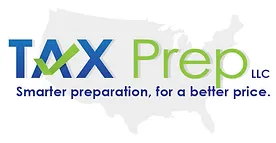Introduction
For small business owners in Boca Raton, the thought of an IRS audit can feel a bit like being called to the principal’s office; stressful, confusing, and a little intimidating. But here’s the good news: with the right preparation and mindset, you can turn a potentially nerve-wracking experience into just another item on your business to-do list. Think of it as a pop quiz you can actually study for!
This guide will walk you through what to expect, how to prepare, and how to handle the IRS with confidence and professionalism. Let’s break it down so you can focus on what you do best: running your business.
Key Considerations for Small Businesses Facing IRS Audits
If you’re a small business owner in Boca Raton, here are some things to keep on your radar when it comes to IRS audits:
1. Audit Triggers:
Ever wonder why some businesses get audited while others don’t? The IRS isn’t picking names out of a hat. Certain factors can make your business more likely to get a second look. These include claiming unusually high deductions compared to your income, reporting numbers that swing wildly from year to year, or operating in a cash-heavy industry (think restaurants, salons, or retail shops). If your tax return stands out, it might just get noticed.
2. Documentation Requirements:
The IRS loves paperwork almost as much as you love a well-balanced spreadsheet. They require clear, organized documentation to back up every dollar of income and every deduction you claim. If you can’t prove it, you can’t deduct it. Simple as that.
3. Responding to IRS Notices:
If you receive a letter from the IRS, don’t panic and definitely don’t ignore it. Responding promptly and thoroughly is key to keeping things on track and avoiding unnecessary headaches.
Effective Strategies for Preparing for an IRS Audit
Here’s how you can set yourself up for audit success (and maybe even impress your auditor):
1. Maintain Comprehensive Records
Think of your business records as your audit Armor. Keep everything organized: income statements, receipts for deductible expenses, bank statements, payroll records, and more. Using accounting software can make this process much easier, and digital copies of receipts mean you won’t be digging through shoeboxes come audit time.
2. Review Your Tax Returns
Before an audit ever happens, take a look at your recent tax returns. Are there any numbers that don’t quite add up? Did you claim a deduction that might raise eyebrows? Make sure you have the documentation to back up every claim. A little self-audit now can save a lot of stress later.
3. Engage a Tax Professional
You don’t have to do it alone! A qualified tax professional or accountant can be your guide through the audit process. They know the ins and outs of tax law, can communicate with the IRS on your behalf, and help you present your records in the best possible light. Think of them as your audit bodyguard.
4. Prepare for the Audit Meeting
If your business is selected for an audit, don’t panic. Instead, get ready to calmly and professionally explain your numbers. Have your paperwork organized and be prepared to answer questions about your deductions and income. The more prepared you are, the smoother the meeting will go.
Common Mistakes to Avoid During IRS Audits
Even the best business owners can make mistakes. Here are a few to steer clear of:
- Ignoring IRS Communication:
That letter from the IRS won’t go away if you pretend it doesn’t exist. Respond quickly to avoid extra scrutiny or penalties. - Inadequate Documentation:
Missing receipts or incomplete records can make your audit much more difficult. Make sure every deduction is supported by clear documentation. - Trying to Handle the Audit Alone:
Unless you’re a tax expert, going solo can lead to mistakes. Don’t hesitate to bring in a professional who knows the ropes.
Real-Life Example: Julia’s Audit Success Story
Let’s look at Julia, who owns a small restaurant in Boca Raton. After claiming higher-than-average operating expenses, Julia received an audit notice from the IRS. Instead of panicking, she pulled out her well-organized records; receipts, invoices, payroll documents, and more. With her tax advisor by her side, Julia was able to answer every question and provide all the necessary paperwork. The result? A smooth audit process and no penalties. Julia’s story is proof that preparation pays off!
Conclusion
IRS audits can be daunting, but they don’t have to be a disaster. For small businesses in Boca Raton, the key is preparation: keep your records organized, review your tax returns regularly, and don’t be afraid to seek professional help. With the right approach, you can handle an audit with confidence and keep your business running smoothly.
Is your business ready for an audit? Don’t wait until you get that letter in the mail. Contact us today to schedule a consultation and make sure your documentation is in order. Protect your business and your peace of mind with smart, proactive tax strategies!
Remember: An audit is just another part of running a business. With the right preparation, you’ll be ready for anything the IRS sends your way!

